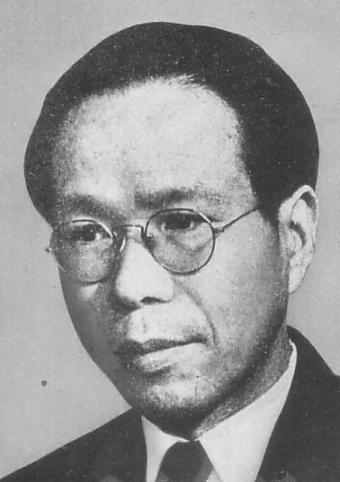
In Philosophical Anthropology, a book he never finished, Miki Kiyoshi contrasts two modes of thought, that of shukan, which Arisaka Yoko describes as the “epistemological subject of perception, cognition, sensation, and other ‘mental’ faculties, and that of shutai, the “subject-as-body” – which she translates as “the embodied subject” – which is the “material subject” that acts in the world.” Shukan is the subject as the West understand it, which looks at the world as an object separate from the subject. Shutai is the existential embodied subject that experiences, and acts in the world. The “body” referred to here is “not the body you see but the body I feel.” It is obviously found in all cultures, but Western culture has kept its philosophers and scientists from relying on it by stating that proper thinking could only be achieved through blocking all affects, feelings and emotions, to stop these from “distorting” objective thinking.
Miki philosophises from the standpoint of shutai, the embodied self, which he had first studied with Nishida Kitaro, and also encountered in Martin Heidegger, who is said to have restored it in the West with his concept of Dasein (being-there). Specifically, Miki resonates with Heidegger’s concept of human beings as involved in “making the world”: “Human beings are not simply in the world; rather, they make the world by working with the world. Such a world that is created may be termed “expression.” Such an expression is carried out through a dialectical process between the internal and the external. Miki writes: “Our standpoint in anthropology is that of self-realizing actions. Human beings are not abstracted from the body; they are grasped socially as the subjects [of actions]. However, the ‘subject of action’ must contain an objective moment in the dialectic. Human beings are internal as well as external, embodied-subjective as well as material-objective. Human beings are grasped in their wholeness for the first time through their self-realizing actions.”
Mediality and Existential Dialectic
Arisaka explains: “Miki describes this process of the experiential dialectic by the term “mediality.” We are never strictly the subject of action or an object in the world, but rather that which mediates – that is to say, an ongoing existential process through which we create our socio-historical environment (which further shapes our mediation).” Miki states: “To say that a human being is “mediality” is to understand [ourselves] not as a discovery of some philosophy but rather as belonging to fundamental experience; and various philosophies are merely various theoretical interpretations of this fundamental experience. However, … if mediality is that which qualitatively permeates the whole of human nature, then it must internally contain contradictions. It can only be understood through a dialectic. Human existence is full of contradictions.”
When reading a text written from the standpoint of shukan, the epistemological self, it often feels that higher, or deeper, levels of consciousness should, as such, improve our cognitive abilities by unveiling hitherto unknown facts about the world. This is not so, at least not directly so. Experience needs to mediate cognition. Higher, or deeper, levels of consciousness allow us to live differently, and provide us with a new experience, as we encounter people and issues, and it is this that will alter our knowledge of the world. I understand this experiential bridge to cognition as what Miki calls “mediality.” Miki also uses the phrase “existentiality of the realization of the self.” Our engagement and activity are shaped through this process while they also shape our concrete reality.
Miki writes: “Human beings act by mediating the world. These actions create the human being. In the sense that there are no actions without mediation in the world, human beings are born in the world. Human beings are not just subjective or conceptual: they act toward and change it, thereby being born anew in the world.”
This is why, Arisaka notes, “the realm of “everydayness” is central to philosophical anthropology as the study of human existence.”
Everydayness
Zen Buddhist practitioners in particular are familiar with the value attached to the ordinary and everyday in their practice. In monastic settings the performance of cleaning, cooking, gardening, etc., is regarded as part of the practice, the so-called “cut wood and carry water” routine. Miki, however, sees himself as a man engaged in the making of the world, and makes no reference to Zen. It is in Heidegger that one should look for the origin of Miki’s focus on the everyday. Arisaka writes: “Heidegger, who influenced Miki, defined “everydayness” (Alltäglichkeit) as the double structure of Dasein, the existence of the human being. On the one hand, this everydayness, by which one unreflectively and routinely goes about life, could be said to be “inauthentic” (or “un-actual, uneigentlich), a mode of the “they” or “the one” (das Man), in the sense that we unthinkingly follow the norms of society and do what everyone else does without consciously thinking about what the actions mean for ourselves. On the other hand, the same activities could be “owned” as our own; in this sense, everydayness becomes, in Heidegger’s terms, “authentic” (actual, eigentlich). Miki does not distinguish these two modes specifically, but he includes both modes in his discussions.”
Arisaka, however, notes that “The notion of “others” is much more developed in Miki.” As will also be the case when Watsuji Tetsuro read Being and Time in 1927, Miki feels that Heidegger failed to engage with “being-with” (Mitsein), and includes other people in his notion of everydayness. Also, for Heidegger, everydayness concealed authenticity. It is a place one can hide in. By contrast, Arisaka states that for Miki “everydayness does not hide our being-in-the-world; rather, it is the condition of our being-in-the-world.” Miki feels that the everyday has not been taken seriously in philosophy: “Our actual being is full of everyday actions, but clarifying such actual living is the task of anthropology.”
Miki writes: “Everydayness, in some sense, is the foundation of history. The actions that might be recorded in history are supported by everyday life, and they function based on this foundation. Everydayness is the perpetual state of our lives.” From the standpoint of the epistemological and theoretical shukan, history is a series of “significant events” that are seen as having led to the present. It is a narrative that delivers an interpretation of the past. From the standpoint of the existential embodied shutai, however, it is simply the ongoing concrete experience of the people involved in the events it describes. In the chapter Hans Peter Liederbach contributed to Miki Kiyoshi and the Crisis of Thought, makes the same point with regard to Miki’s reading of Marx. He writes: “[Miki’s] encounter with Marx leads him to develop a historical understanding of human existence and, consequently, fundamental experience.” In other words, Miki was not primarily interested in Marx’s political argument. He simply saw “work,” as the making of the world, from an existential standpoint – what Heidegger had called a “fundamental experience,” without buying into any strategical elaboration into a political theory. Saying it was “historical” is the same as what Buddhism would call “phenomenal” – a fact of existence on an everyday basis.
Arisaka comments: “Our actions, no matter how insignificant they may seem, express our involvement in reality, and such involvements make up personal and untold and undocumented communal histories. Such communal histories are part of national histories, which are part of world histories. Thus, everydayness, world historicity, and historicity … are the foundational frameworks of anthropology.”
Miki sums it up as follows: “The problem of human historicity is central to anthropology, but the foundation for such a consideration and its goal is everydayness. From this perspective, in contrast to the philosophy of history being the study of the historicity of the world, anthropology entails the philosophy of history from the everyday.”
Therefore, Arisaka concludes: “Everydayness, history, and world are all non-objective, non-naturalistic categories; they are existential expressions of human activities.”
Creativity, Technology, and the Future of Humanity
In 1937, Miki abandoned the composition of Philosophical Anthropology to focus on the writing of The Logic of Imagination, which he started to serialise in the journal Thought that same year. At the same time he wrote The Philosophy of Technology, where he used his new insights into the logic of imagination to show how “Technology is our material expressiveness given a particular form by our imagination.”
Arisaka notes that Miki’s Philosophy of Technology “appeared fifteen years prior to Heidegger’s essay, “Question Concerning Technology” (1954) … Whereas Heidegger theorized modern technology in negative terms as “Enframing” (Gestell) that hides and confines the truth of being for us in a technically determined way, Miki’s existential theory of technology seems not only more neutral, but also appears to possess a utopian outlook.” Miki writes: “As formative, our actions are historical. Historical actions are technological. Indeed, history is created technologically; historicity cannot be conceived apart from technology.” Further, “through technology, humans create their own forms of society and culture and, moreover, change them into new forms. Not only culture but fundamentally speaking, all forms of human action and various institutions depend on such form-giving activity.” Despite Miki’s laudable intention to show how civilisation could achieve “ultimate harmony between humans and nature via technology,” the catastrophic degradation of nature that has taken place since 1945 is evidence that this has not been the case. Heidegger’s pessimistic assessment of technology unfortunately turned out to be closer to the facts.
Sources:
Arisaka Yoko – “Miki’s Philosophical Anthropology: Embodiment, Mediality and Everydayness”
Hans Peter Liederbach – “Historizing Anti-Cartesianism: Miki’s Appropriation of Heidegger’s ‘Fundamental Experience’”
both in Miki Kiyoshi and the Crisis of Thought, ed. Steve Lofts, Nakamura Norihito & Fernando Wirtz
